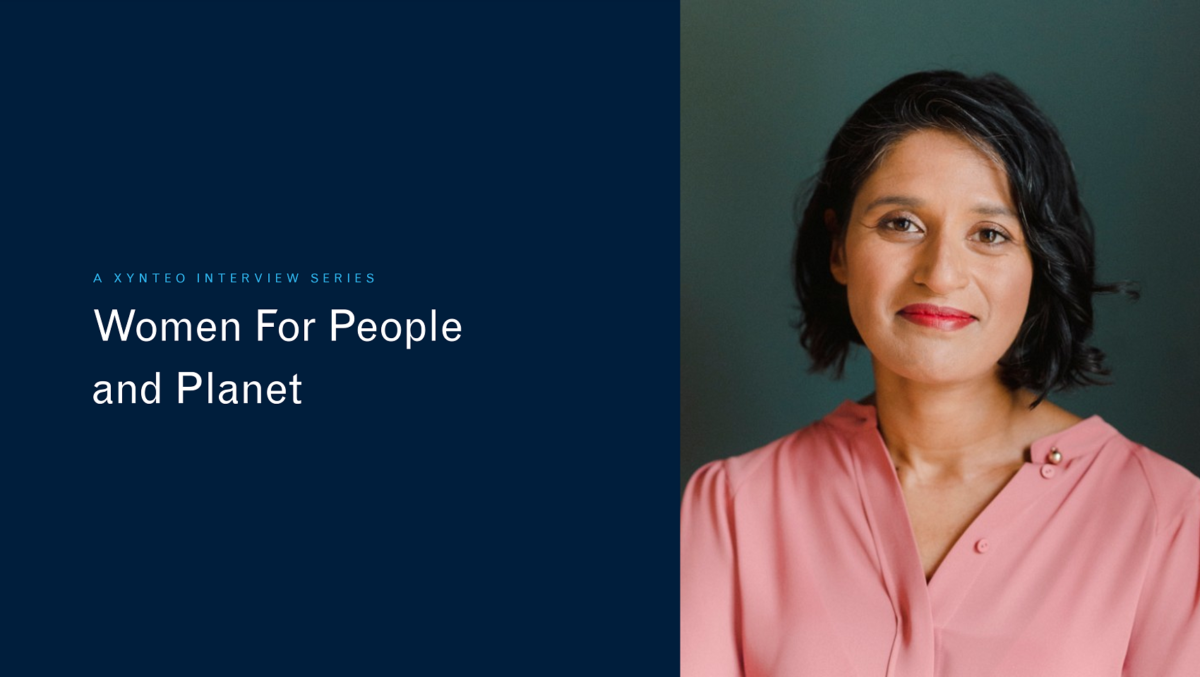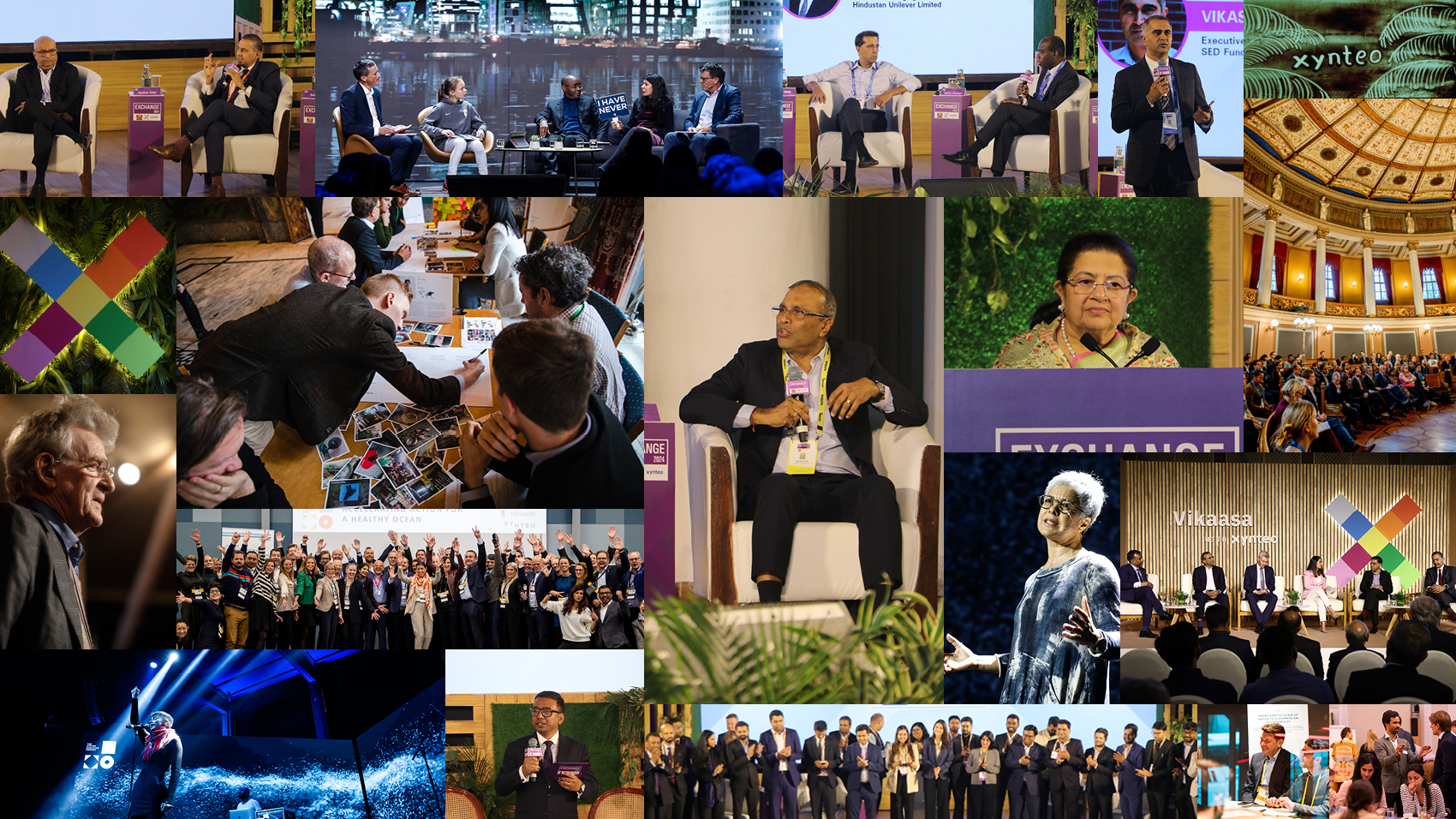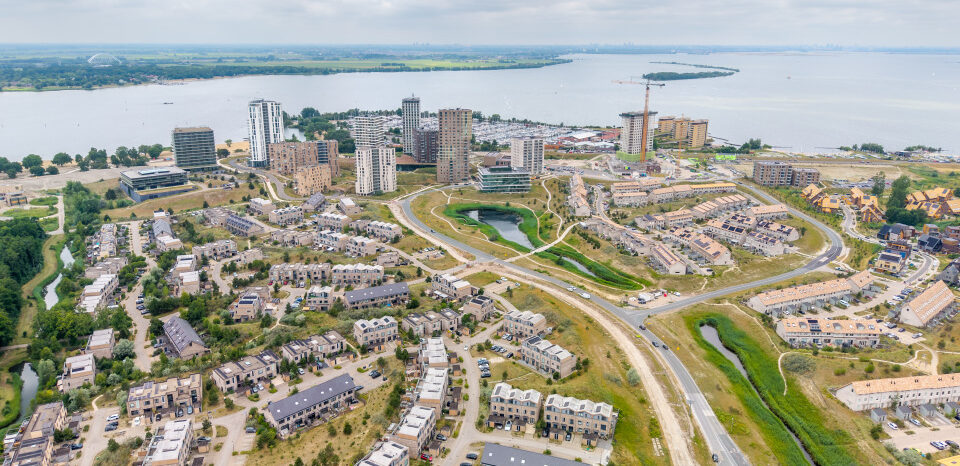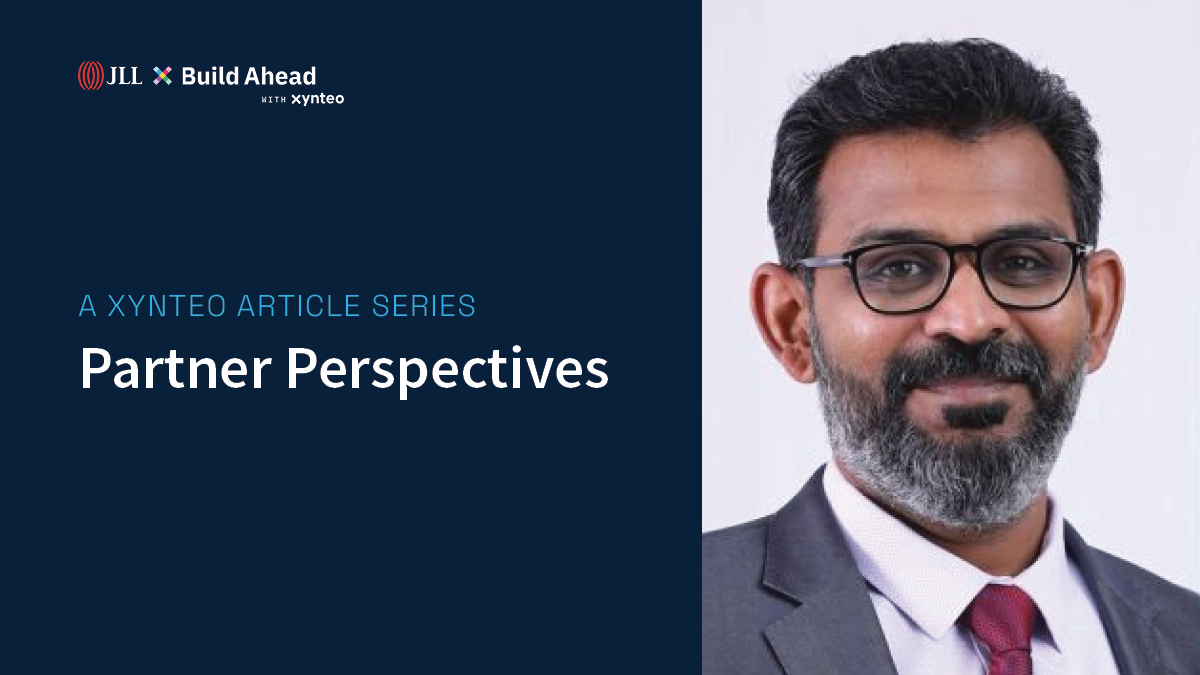With three decades of public and private finance under her belt, Roshana Arasaratnam is now bringing together the public and private in sustainability finance within the government with a focus on the sustainability in corporate governance. Her side hustle? Moulding minds at Cambridge Institute for Sustainability Leadership.
Xynteo’s Sally Gray sat down with Roshana to talk about her journey, what she has learnt, and how she sees the future of sustainability in the corporate world.
What does your personal journey towards sustainability look like?
Roshana: In the words of Steve Jobs, “You can’t connect the dots looking forward; you can only connect them looking backwards”. And, so I think I’ve now realised 30 years on that what I’ve been trying to do is look at different ways of how to move money for impact, which we now call sustainability. But I think when I started off, I thought the way to do that was probably being in the public sector because I’ve also been really interested in policy, and t have been a finance practitioner. So, I wondered, how do you bring those things together?
And so my journey has been that of a public finance person—training as s accountant, then moving into policy because I never really intended to be an accountant, and then working in local government and then at Moody’s. And the thing is, there’s real power in one being a finance person who works in public policy or understands public policy and social policy.
But then when I went to Moody’s, I realised there’s real power in being someone who can translate between public and private sector. And about three years ago, , sustainable finance was f becoming a real thing. I felt this sounded very similar to what public finance’s Holy Grail is—which is we give you all this money and we want to know what the non-financial impact is. And if we’d figured it out, I would have been out of a job, and probably most of Whitehall as well.
So that’s been my journey into what is we now call sustainability, but I think it’s very similar to anyone who’s between policy and finance. So now I’m at UK Government Investments, bringing together the public and private sectors. We are supporting commercial assets, but they all are delivering a policy outcome – so there is a non-financial impact as well.
What are the skills and experiences that you’ve valued the most on this journey and have equipped you best?
Roshana: I think agility. I have had a squiggly career between public and private, and I think that’s very powerful, but I think you kind of have to reinvent and rebrand yourself, and you need resilience—and I will definitely say that sustainability teams need that. I’ve probably been in change roles that aren’t called change roles—we all are in some sort of change role and so that’s really important. I’m quite magpie-like, I’m interested in what organisational change or design will tell us, or what leadership theory will tell us.
But I think there’s power in taking that and being a practitioner. So, I’m really trying to go—here is the theory, what’s the practice? I think those are the things that have been the most useful for me, but resilience probably is the main one.
Also knowing when to protect yourself as well—we talk about when to persist and when to desist, right, when to keep pushing on the door and when to not. And I think particularly for anyone with a very strong sense of purpose or drive—we’re not very good at that.
To me it’s obvious that public finance is sustainable finance – there’s a whole set of people dealing with these issues, meaning we don’t need to be reinventing the wheel and starting from scratch.
What barriers have you faced?
Roshana: I think one challenge—I’m sure other sustainability finance people probably have this too—is to explain why your transferable skills are transferable and applicable. To me it’s very obvious that public finance is sustainable finance, but for some reason communicating that to other people is difficult. —That here’s a whole set of people that has been dealing with these issues, rather than reinventing the wheel and starting from scratch.
I think an ongoing challenge—and opportunity too I guess—is actually finding the place that’s the right place for you. That’s ongoing I think for many of us, thinking about what’s the work that needs to be done.
I met a really inspirational founder the other day and she really had that mindset of, like, what’s the problem that needs solving? And that was a good reminder to me because I generally think e, what’s a Roshana-shaped problem? I still have difficulty defining that or saying yes, this is where I can really be of most use. Some of that is about experimentation, and I think an honesty of saying we don’t have all the answers or any of the answers. And also just saying, the traditional way of let’s just measure it and baseline it and do the metrics and then we’re kind of done here isn’t going to be the mindset anymore. And that is an ongoing dialogue and I feel like that’s a conversation I’m going to have every day.
Sustainability was the big thing a couple of years ago. Now it’s AI and cyber risk and I wonder if we’re just moving along enough in our intent, and thinking, oh, this is just a new fad. We are working on business transformation for business. So what does government transformation look like? Because I think government itself needs to transform. And this is something I’ve just been thinking about.
What has been your proudest impact moment?
Roshana: My side hustle is tutoring the sustainable finance class at Cambridge Institute for Sustainability Leadership, and I think that’s what I’m most proud of—it’s great to just be in that world and actually be able to not just say, oh, I think public finance is important, but actually have a forum to influence that. By now I’ve tutored, probably about 1,000 people. So if I have been a small part of their sustainability journey, helped them to navigate something that’s moving fast and evolving and that they feel, is their main purpose, they have agency in it, then that is just going to amplify impact.
It’s a great opportunity to meet people from lots of different backgrounds as well. And you learn a lot, just seeing the connections and how some people have amazing journeys of thinking “oh, I thought my role was about this and now I realise I’m part of a bigger system as well”. So that for me has –I don’t like the word impactful; I don’t think it’s a real word—had the most impact.
How do you see the future of the CSO role/sustainability teams in the board room?
Roshana: I don’t think this is going away. I mean, the CSO role may fall away. But I think we will see sustainability really starting to shape the intentions of governance, of boards and moving away from stakeholder capitalism.
So really, I think that fiduciary duty is expanding those expectations for boards. Here in UK, there are expectations for what these boards are doing for stewardship of money, assets, people, and the supply chain. So, I think corporate governance code as always will be running to catch up with that and codify that. And the history of corporate governance is generally in response to failure. So we might see some of that, but I think it’s going to catching up.
I’m not hung up on whether there’s a CSO or not, but I would like to see what’s the influence of those views at the top table and to see sustainability teams embedded in organisations. And you see this in purpose driven organizations. It’s really embedded. It’s a team. It’s a mindset that’s coming through everyone. I mean, so this is what I would like to see in the future
What one piece of advice would you have for people working in the sustainability sector?
Roshana: Yeah, top of mind—can I shout out? Elvis and Kresse do handbags made out of upcycled material from reclaimed firehose, leather off-cuts and parachute silk, but they have a whole vision—in that there’s no waste. And they’re ahead of their time, but like Kresse Wesling, find your problem. And then get involved.
To be insprised by all our latest interviews, visit our Women for People and Planet interview hub.
Read moreStay up to date with our latest interviews by following us on social media (LinkedIn I Twitter), or Contact Us to find out how we can help your leaders and organisation create people and planet-positive impact.



